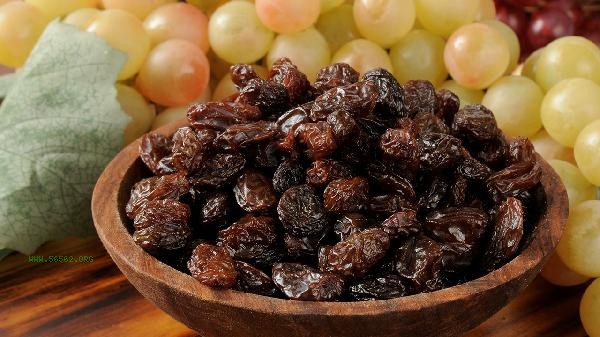During the fitness and weight loss period, you can eat raisins in moderation, but you need to control your intake. Raisins are rich in natural sugar and dietary fiber, which can quickly replenish energy, but excessive intake may affect the fat loss effect. Raisins are dehydrated and concentrated fruits with a high sugar content, containing approximately 60 grams of carbohydrates per 100 grams. Eating a small amount after exercise can help restore muscle glycogen, which contains potassium that helps alleviate muscle fatigue after exercise. Choosing natural raisins without added sugar is healthier, and consuming them with nuts can slow down the rate of blood sugar rise. It should be noted that the daily intake should not exceed 30 grams and should be avoided during the evening or non exercise periods.

In special circumstances such as poor blood sugar control or during a strict low-carbon diet, it is recommended to temporarily avoid consuming raisins. Some people may have fructose intolerance and experience discomfort such as bloating after consumption, which should be stopped immediately. Raisins can be added to oatmeal Congee or yogurt as seasoning during fat reduction period, which is more reasonable to use instead of refined sugar. The principle of maintaining sufficient protein and moderate carbohydrates in diet during fitness and weight loss period. In addition to controlling the intake of dried fruits such as raisins, it is recommended to increase the proportion of whole grains, lean meat, and fresh vegetables, and combine strength training to improve basal metabolic rate. Developing the habit of keeping track of diet can help grasp the calorie deficit. It is more important to replenish water after exercise than sugar. If necessary, consult a nutritionist to develop a personalized plan.









Comments (0)
Leave a Comment
No comments yet
Be the first to share your thoughts!